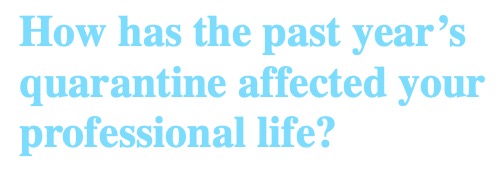The COVID-19 pandemic has foregrounded preexisting systemic inequities within academic art history. These inequities involve labor conditions vis-à-vis work inside and outside the home, access to healthcare and support networks, and the availability of free time, rest, and love in its many forms. The pandemic has accentuated the long-term precarity that already dominated humanistic academic work across the board, normalizing crucial discussions about the maintenance and care crisis that to different degrees impacts our lives and careers. These baseline cracks have conditioned our readiness to plan long-term research and life goals. They have curtailed our ability to be empathetic and present teachers, and have often accentuated already existing feelings of alienation and exhaustion within our field.
We have all tried our best to be creative while making do and surviving since March 2020. We got used to living with uncertainty and accommodating last-minute changes that reverberated throughout our systems and networks. We missed exhibitions and archives, in-person interviews, and studio visits. We also learned and practiced new forms of solidarity that were mediated through new channels and given new names. We strengthened some of our friendships and work relationships, and got to know our colleagues and students better—along with their vulnerabilities and strengths. The temporary solutions that we have relied on during this time, however, ought to be taken as invitations to rethink, plan, and remedy these systemic cracks so that we can grow stronger in the long term. After all, the pandemic is not over, and the crisis promises to be long and multifaceted.
PALOMA CHECA-GISMERO, art historian and assistant professor, Swarthmore College

